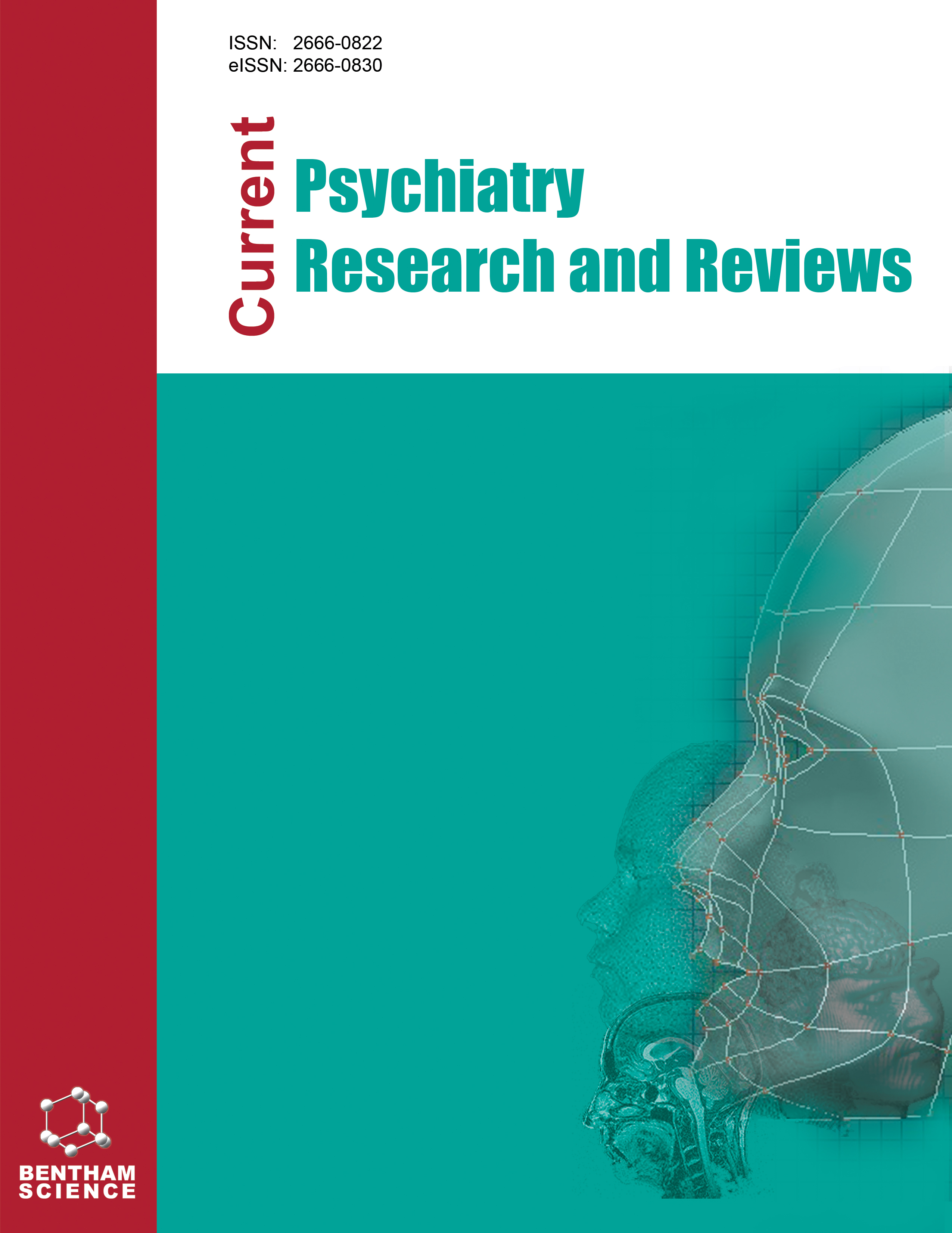- Home
- A-Z Publications
- Current Psychiatry Research and Reviews
- Previous Issues
- Volume 16, Issue 4, 2020
Current Psychiatry Research and Reviews - Volume 16, Issue 4, 2020
Volume 16, Issue 4, 2020
-
-
EEG Correlates of Cognitive Functions and Neuropsychiatric Disorders: A Review of Oscillatory Activity and Neural Synchrony Abnormalities
More LessAuthors: Meysam Amidfar and Yong-Ku KimBackground: A large body of evidence suggested that disruption of neural rhythms and synchronization of brain oscillations are correlated with a variety of cognitive and perceptual processes. Cognitive deficits are common features of psychiatric disorders that complicate treatment of the motivational, affective and emotional symptoms. Objective: Electrophysiological correlates of cognitive functions will contribute to under Read More
-
-
-
Mental and Emotional Wellbeing During the COVID-19 Pandemic: The Unprecedented Malaysian Experience
More LessAuthors: Zamalia Mahmud, Rosli A. Rahim, Aida W. Z. Abidin and Nik Nairan Nik AbdullahBackground: The Movement Control Order (MCO) due to COVID-19 has brought people’s life to almost a standstill. How people across different ages and income groups are mentally and physically adjusting to the unprecedented situation in Malaysia is yet to be documented. Hence, an empirical study was conducted to capture this real-time situation during COVID-19 MCO. Objective: To describe the mental and emotional wellbein Read More
-
-
-
Clinical Presentation and Short Term Treatment Response in Catatonia: An Observational Study
More LessAuthors: Kunal Surjan, Shivali Aggarwal, Mohit Sharma, Vishal Dhiman and Vijender SinghBackground: Clinical features and treatment response in catatonia is unpredictable and needs to be studied further. Objective: The aim of this research is to study clinical presentations of catatonia and its response to various modalities of treatment. Methods: This study recruited 50 patients in the age group of 15-65 years, with a diagnosis of catatonia as per DSM 5 criteria, selected by a stepwise process of sample s Read More
-
-
-
The Effect of Tele-acupressure Self-practice for Mental Health and Wellbeing in the Community During COVID-19
More LessBy Yun J. KimBackground: Preliminary studies support the clinical effect of acupressure in managing neuropsychiatric diseases. However, procedures for the selection of intervention and Tele-acupressure self-practice implementation techniques are lacking. This lack of information hinders further studies on the effect of Tele-acupressure self-practice and its subsequent clinical uses. Objective: The aim of this study was to assess the effect Read More
-
-
-
Levels and Correlates of Disability in Life Skills among Patients with Schizophrenia
More LessAuthors: Shaher H. Hamaideh, Ayman Hamdan-Mansour and Ayat Ahmad AlhamdanBackground: Schizophrenia is a severe mental disability disorder that affects all life aspects, including life functioning, general well-being, and overall life skills resulting in prominent impairments in life functioning. Objectives: The objective of the study was to assess life skills and disabilities and its correlates among Jordanian patients with schizophrenia. Methods: A cross-sectional correlational design was used. A convenienc Read More
-
-
-
Misinformation About COVID-19 and Confidential Information Leakage: Impacts on the Psychological Well-being of Indians
More LessAuthors: Surekha Borra and Nilanjan DeyMisinformation, in most cases, is the reconfigured content using basic tools. Fake information related to casualties, infections, contacts, lockdowns, investments, exam schedules, and immigration, leads to confusion, fears, phobophobia, discrimination, harassment, physical injuries, deaths, financial damages, reputational losses, and many more long-lasting side effects. Objective: The aim of this article is to provide an overvi Read More
-
-
-
Psychiatric Manifestations of Ehlers-Danlos Syndrome in Adolescents: A Case Report and Literature Review
More LessAuthors: Daisy V. Shirk and Sarah D. WilliamsBackground: Ehlers-Danlos Syndromes (EDS) comprise a group of heterogeneous hereditary connective tissue disorders [1, 2]. Psychiatric disorders such as depression, anxiety, panic disorder, agoraphobia, schizophrenia, neurodevelopmental disorders, personality disorder, eating disorders, substance misuse and interpersonal issues have been reported in the literature to be associated with EDS [1-3]. Objectives: The case of Read More
-
Most Read This Month
Article
content/journals/cprr
Journal
10
5
false
en


